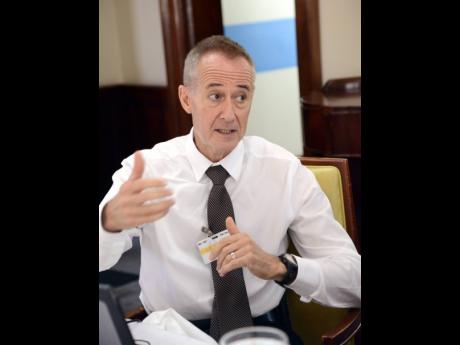Lack of legislation delays BCJ’s social media plans
Chairman of the Broadcasting Commission of Jamaica (BCJ) Professor Anthony Clayton says that the commission cannot act on the trusted YouTube flagger status it received from the Internet giant earlier this year because local lawmakers are yet to enact legislation to facilitate its roll-out.
A trusted YouTube flagger status equips governments, non-governmental organisations, and certain individuals with robust tools to notify YouTube of content that violates its community guidelines and to make recommendations for such material to be booted from the site in reasonable time following the lodging of a report.
Before the mass shooting inside an El Paso, Texas, Walmart on August 3, which claimed the lives of 22 people, the gunman allegedly posted an anti-immigrant and hate-filled manifesto online, which warned of a “Hispanic invasion of Texas” and detailed plans for separating people by race.
“We have not yet had a recorded incident of any of that sort of thing. We’ve had false rumours and fake news but no violence exclusively linked to social media. What we do have are some gangs recording rapes and murders and circulating them online,” Clayton said.
“We have been talking to Facebook and WhatsApp to find out what is possible in terms of taking off extremely violent material that is encouragement to violence. Before we get there, there are a number of things we need to put in place, including the legislation. We can’t act beyond our powers, especially in those cases where there are clear gaps in enabling legislation. Current legislation doesn’t take account of the fact that social media is now the biggest news source in the world,” he added.
Clayton’s main concern is how the flagging of videos would impact freedom of speech in Jamaica.
“How can we keep supporting freedom of speech and at the same time deal with the fact that people are reaching out through social media to disaffected youth, mostly young males, and encouraging them to see violence as a solution to their problems?”
A number of countries have enacted laws to govern social media in their jurisdiction. Germany, for instance, implemented a law in 2018 that forces companies to set up procedures to review complaints about content they host and to remove, in 24 hours, anything illegal.
The European Union (EU) is considering a clampdown on certain videos, especially those that depict terror. If implemented, social media platforms could face stiff fines if they don’t delete extremist content within one hour.
Also, the EU introduced the General Data Protection Regulation, which sets rules about how people’s data are stored by big Internet companies.

